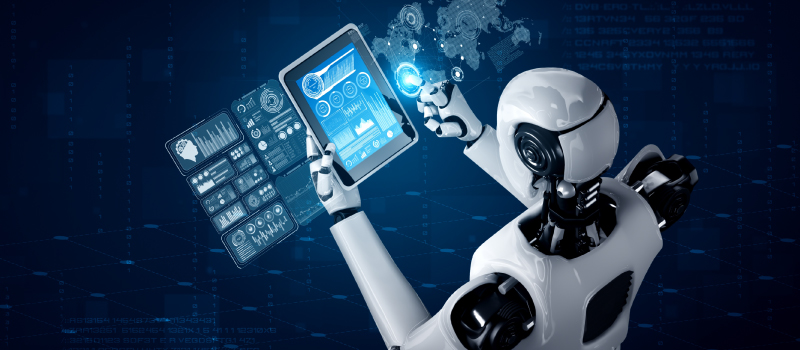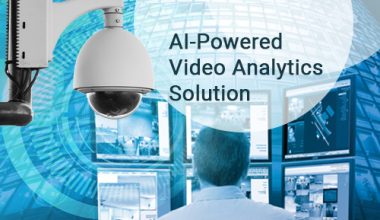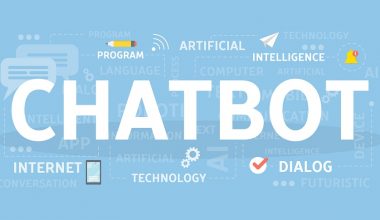Artificial Intelligence (AI) has emerged as a powerful force for change. Its ability to process vast amounts of data and perform complex tasks is reshaping various aspects of our lives. From revolutionizing healthcare to enhancing agriculture and addressing climate change, AI from an Artificial Intelligence Development Company holds the promise of ushering in a new era of progress. However, as we embrace these opportunities, we must also acknowledge and address the challenges that come with the transformative power of AI.

Opportunities
Agricultural Productivity Boost
Leveraging AI from an Artificial Intelligence Development Company in agriculture through the digitization and analysis of images from drones and satellites can lead to increased productivity. Farmers can make informed decisions based on real-time data, optimizing crop yields and resource utilization.
Enhanced Healthcare
AI from an Artificial Intelligence Development Company plays a crucial role in improving the collection and analysis of health data, especially in remote areas. This can lead to better patient diagnosis and treatment. Additionally, climate and environmental data can assist in predicting and controlling diseases like malaria, ensuring more efficient deployment of medical resources.
Empowering Education
AI’s ability to assess the learning capability of students helps tailor educational approaches. It fosters confidence in mastering subjects, creating a more personalized and effective learning experience.
Inclusive Technology for Disabilities
AI from an Artificial Intelligence Development Company advancements in text-to-voice and voice-to-text translations contribute to making information and communication technologies (ICTs) accessible to individuals with visual or hearing impairments. This promotes inclusivity and equal access to information.
Smart Sustainable Cities
AI from an Artificial Intelligence Development Company is instrumental in the creation of smart sustainable cities. It facilitates efficient urban planning, and resource management, and enhances the overall quality of life for residents.
Climate Change Mitigation
By analyzing climate change data and modeling scenarios through AI, we gain insights into potential challenges and disasters. This information is crucial for developing strategies to mitigate the impact of climate change.
Marine Ecosystem Conservation
AI-driven pattern recognition aids in tracking marine life migration, monitoring underwater life concentrations, and regulating fishing activities. This contributes to the preservation of marine ecosystems and combats illegal fishing.
Challenges
Bias and Inequality
Datasets and algorithms may unintentionally reflect or perpetuate biases, whether gender, racial, or ideological. This could lead to skewed AI conclusions, affecting various aspects of our lives.
Opaque Decision-Making
Deep-learning algorithms, while powerful, often operate in an opaque manner. This lack of transparency raises concerns about decision-making processes, especially when it comes to critical areas like finance and employment.
Job Displacement
The automation of routine tasks by AI from an Artificial Intelligence Development Company poses a risk of job displacement. Striking a balance between automation and job creation is essential to prevent deepening inequalities.
Security Flaws
Software vulnerabilities in AI from an Artificial Intelligence Development Company systems, such as those running on cell phones or security cameras, can lead to security breaches, risking theft of money, identity, or disruptions in services like the internet and electricity.
Threats to Peace and Security
Advances in AI, particularly in machine learning, can be exploited for malicious purposes, such as creating fake videos or audio to influence votes and governance. This poses new threats to international peace and security.
Solutions
International Standards and Open-Source Collaboration
Establishing international standards and promoting open-source collaboration can create a common language and tool for the development of AI applications. This ensures that the benefits of AI from an Artificial Intelligence Development Company are accessible globally while minimizing negative impacts.
Diverse Stakeholder Involvement
Including a diverse range of stakeholders in the design and development of AI systems is crucial. Representative datasets and safeguards must be in place to ensure legal, ethical, and secure use of AI from an Artificial Intelligence Development Company and Big Data.
Transparency in AI
Increasing transparency in AI decision-making processes allows humans to understand why certain conclusions are reached. This transparency encourages experts to validate conclusions or make different decisions, balancing the power between humans and machines.
Skill Development for Employment Opportunities
To counter the potential job displacement caused by AI, creating environments conducive to acquiring digital skills is essential. This includes formal education and workplace training to equip individuals with the skills needed to navigate the digital landscape.
Addressing Security Challenges
Deploying efforts to protect the safety, privacy, identity, and possessions of end-users is crucial. This is especially important in areas such as e-finance, e-governance, smart sustainable cities, and connected cars.
Moral Compass of Artificial Intelligence
The ethical considerations surrounding its development and deployment have become increasingly paramount. As AI systems from an AI services company become integral parts of decision-making processes in areas like finance, healthcare, and employment, the need for ethical guidelines becomes imperative. We delve into the importance of establishing ethical frameworks to guide the design and use of AI.
Ensuring that AI from an Artificial Intelligence Development Company application aligns with moral principles and human values is essential for building trust among users. The ethical dimensions of AI systems from an AI services company involve addressing issues such as fairness, accountability, and transparency. Striking the right balance between technological innovation and ethical responsibility is crucial for creating a future where AI from an Artificial Intelligence Development Company not only excels in functionality but also upholds the highest standards of morality. By navigating the moral compass of AI, we can harness its potential while safeguarding against unintended consequences and ensuring a future where technology serves humanity with integrity
Conclusion
As we ride the wave of AI advancement, it is imperative to recognize the dual nature of this transformative force. The opportunities are vast, promising progress across various sectors and contributing to the achievement of the United Nations Sustainable Development Goals. However, we must tread carefully, acknowledging and addressing the challenges to ensure that the benefits of AI are accessible to all while mitigating potential risks.
By fostering collaboration, transparency, and skill development, we can steer AI toward a future where it truly serves humanity, creating a more inclusive, efficient, and sustainable world. It’s not just about embracing the technology; it’s about navigating its complexities to harness its potential for the greater good.





